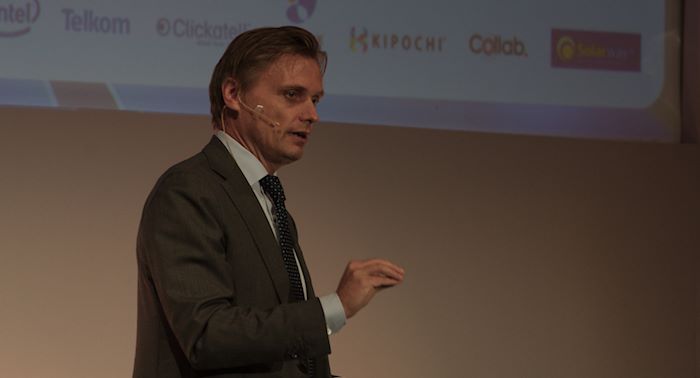Swedish manufacturer of networking kit, Ericsson, released its annual Mobility Report last night, and for the first time it included an section specific to phone usage and prediction in sub-Sahaharan Africa. The firm’s regional head, Fredrik Jejdling, referenced the report heavily this morning in a keynote speech at Africa Com in Cape Town today, where he outlined some of the growth predictions and potential pitfalls operators are going to face over the next few years.
The headline predictions from the report, Jejdling said, are that Ericsson expects growth in African data usage to grow by 17 times its current amount, compared to a mere 10 tens growth in the rest of the world. Right now, the report says, 85% of mobile data connections are still GSM/EDGE connections, by 2019 it’s expected that 80%of all subscriptions will be 3G or better.
Other key stats in the report are:
- By 2019 there will 930m mobile subsciptions in sub-Saharan Africa
- There will also be 732m mobile broadband subscriptions
- And 476m smartphones
That’s a lot of smartphones.
One key area, Jejdling said, was the need to make networks work indoors – a point he used to show off Ericsson’s curious new Radio Dot devices. The size and shape of a smoke detector, the transceivers plug into existing CAT5 cable infrastructure and Jejdling says that eight of the devices positioned strategically around the ceiling can cover a whole floor with an LTE-compatible network. Ericsson is positioning it as a low cost replacement for femtocells in shopping malls and large office blocks.
Before concluding, however, Jejdling touched on the issue of TV white spaces (TVWS) in Africa, a technology which delivers broadband using the gaps in spectrum allocated for television broadcasts, He reiterated Ericsson’s position that the TVWS spectrum – which has been allocated for 4G/LTE use in countries where analogue TV is no longer broadbast – is enormously valuable to mobile operators and should be licensed and regulated in the same way as the rest of the mobile network.
With Google – who is most definitely not a licensed mobile operator – recently concluding its TVWS trials in Cape Town and declaring it a success, the issue of who has the right to use the currently unregulated TVWS spectrum is going to become a hot one fast.

